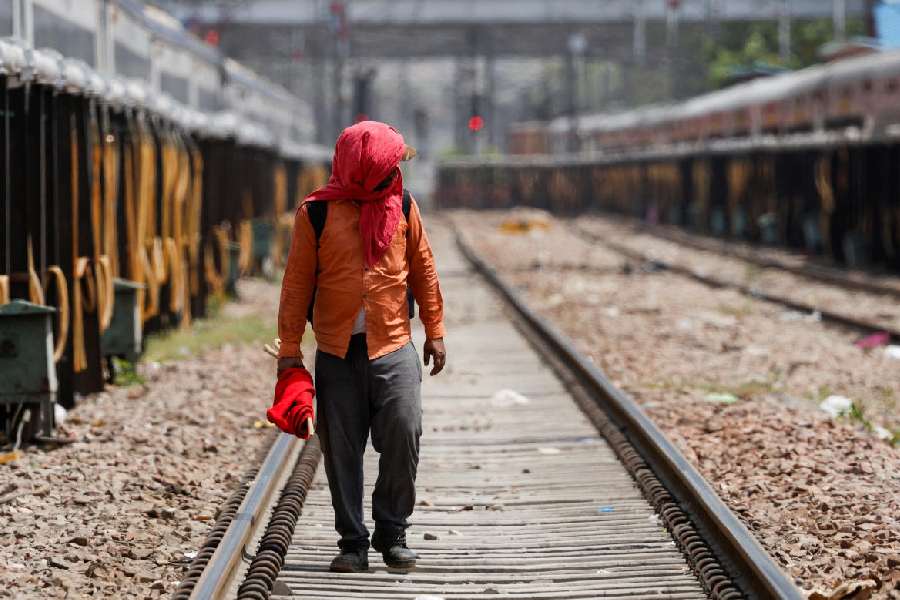Health threats emanating from climate change have reached record-breaking proportions in most countries, with India being one of the most impacted, a global report has found.
The report titled “Countdown on Health and Climate Change” published by The Lancet on Wednesday shows “10 of 15 indicators tracking health threats reaching… new records”.
“The climate crisis is a health crisis. As the planet heats up, the frequency and intensity of climate-related disasters increase, leaving no region untouched,” said Tedros Adhanom Ghebreyesus, director-general of the World Health Organization, which was a strategic partner in preparing the report.
United Nations secretary-general Antonio Guterres said: “Record-high emissions are posing record-breaking threats to our health. We must cure the sickness of climate inaction — by slashing emissions, protecting people from climate extremes and ending our fossil fuel addiction.”
The report says that “in 2023, people were exposed to, on average, an unprecedented 50 more days of health-threatening temperatures than expected without climate change”. It also points out that extreme drought affected 48 per cent of the global land area last year, the second-highest level ever recorded.
The impact of climate change on India was worse compared with the global benchmark. “India has recently experienced record-breaking heatwaves. In 2023, each person was exposed to more than 2,400 hours, the equivalent to 100 days, per year when light outdoor activity like walking posed at least a moderate risk to heat stress,” reads the report, a copy of which is with The Telegraph.
The report states that infants and the elderly in India have been most affected by recent climatic events. “From 2014-2023, each infant and adult aged over 65 was exposed to an average 7.7 and 8.4 heatwave days per year, respectively; 47 per cent and 58 per cent (over) compared to 1990-1999,” the report added.
Apart from the physical stress from such heat, there have also been formidable economic losses, claims the report stating that “181 billion potential labour hours were lost due to heat exposure in 2023 (and) $141 billion was the potential income loss from labour capacity reduction due to heat in 2023”.
The report also shows that in the decade ending in 2023, climate change has substantially altered the transmission dynamics of climate-sensitive infectious diseases in India. Malaria, which normally remains confined to lowland areas, has spread to the Himalayas while dengue expanded throughout the country, including coastal regions.
“The transmission potential for dengue carried by Aedes albopictas mosquitoes increased 85 per cent from 1951-1960 to 2014- 2023,” shows the report that has also underlined that the coastal population has become more vulnerable to a pathogen such as vibrio that causes gut infections and cholera because of changing climatic condition.
The coastal areas of the country are also impacted by the rise in sea level. “India’s extensive coastline, spanning over 7,500km, faces severe threats from rising sea levels driven by both natural processes and human activities. Coastal regions, such as the Sunderbans, Mumbai, Tamil Nadu, Puducherry, Kerala, Andhra Pradesh, Telangana, Odisha and parts of Gujarat, are especially vulnerable to the impacts of sealevel rise”.
In 2023, approximately 18.1 million people in the country resided in areas less than one metre above sea level, triggering migration, the report states. “Our studies have shown that 7 out of 10 families in Sunderbans migrate and climate change impacts, along with other factors, play a key role in the dynamics,” said Tuhin Ghosh, a Sunderbans researcher and professor at Jadavpur University.
“If India aspires to be a developed country soon, it must keep in mind that health impacts due to rising climatic factors will slow down our growth. Healthy people build a healthy nation and hence India should invest in being more climate resilient,” said Sanjay Vashist, director of Climate Action NetworkSouth Asia.










